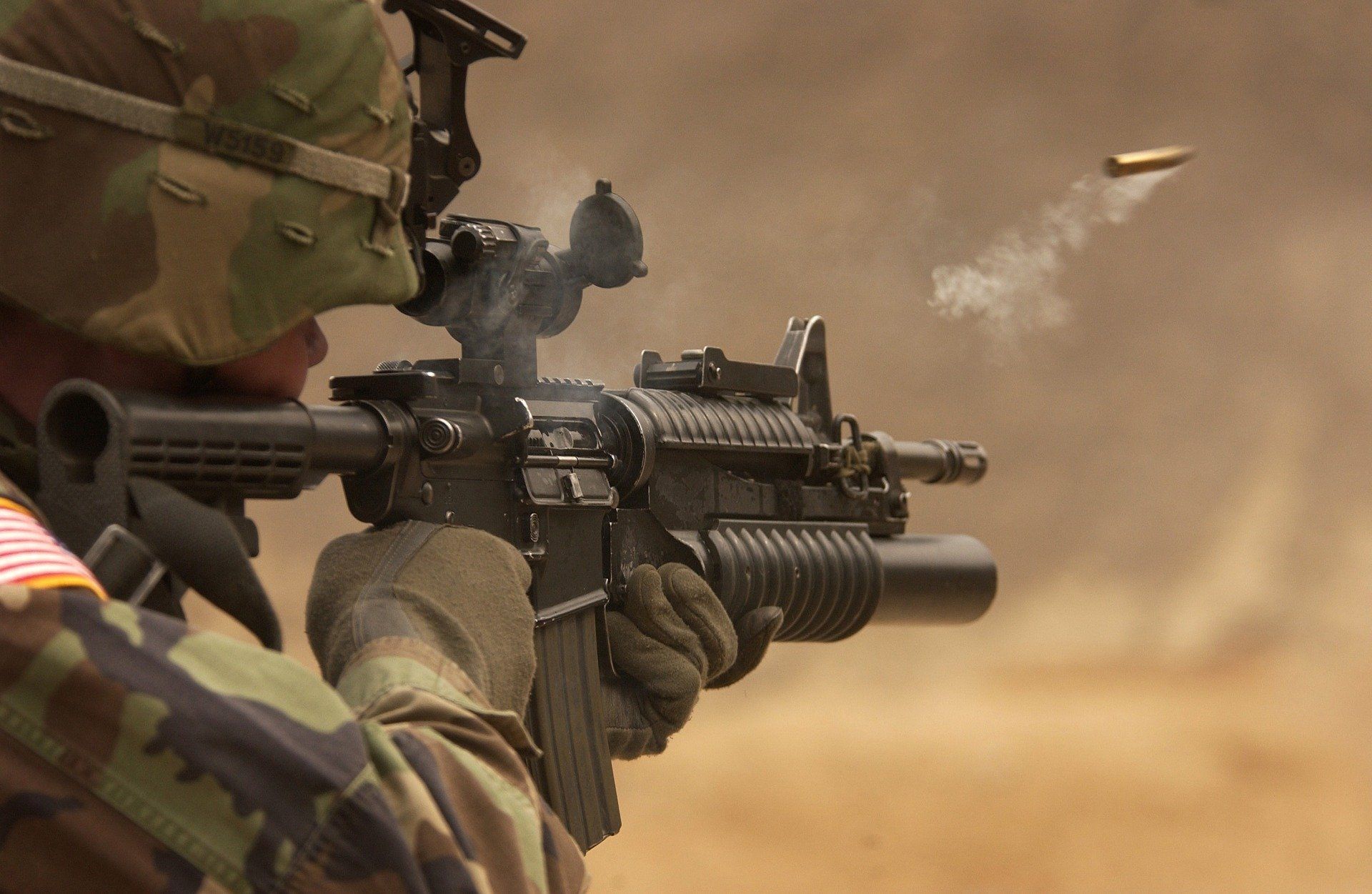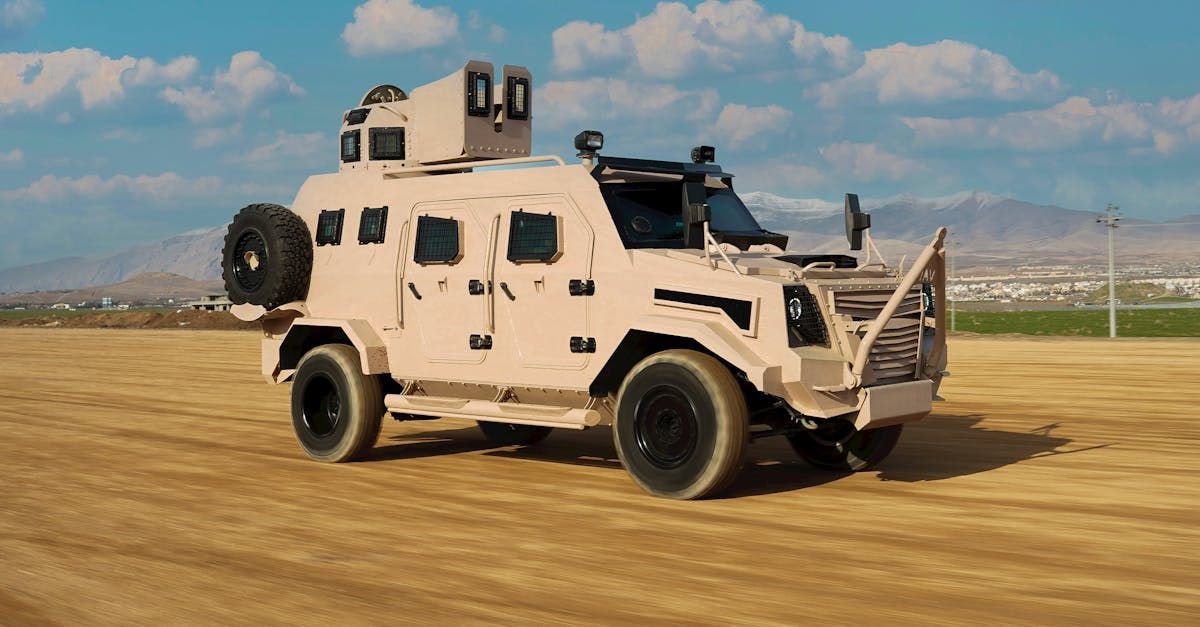Private Military Contractors vs Mercenaries
Private Military Contractors Versus Mercenaries: An In-Depth Comparison

People often use “private military contractor” and “mercenaries” interchangeably. However, after knowing the difference between the two, you’d agree that it shouldn’t be the case at all.
Private military contractors (PMCs) can legally operate and work with government agencies, the United States Army (and armies from other countries), and private citizens who safeguard themselves and their properties.
Mercenaries, on the other hand, typically operate outside the law. Employers directly hire them to fight battles on their behalf (something military contractors are unable to do).
But their differences go deeper than that.
Mercenaries vs. Private Military Companies
Here are just some of the ways private contractors are different from mercenary groups.
Hiring Process
To be a contractor, you need to be hired by one of the private military companies that are licensed to operate. Anyone who’d like to avail of the services of private military contractors would have to go through the company first.
In a way, the PMC will act as a middleman. After the PMC assesses the situation, it will determine which of their staff are best suited for the work.
Mercenaries are more like freelancers. They are contacted directly by the employer and are bound only by the rules given to them by the one who hired them.
Do note that some mercenaries have military or law enforcement experience as well.
PMCs have strict guidelines on who they could hire. You need to have some kind of military background to qualify. Usually, private
contractors have a Special Forces background.
Mercenaries can come from all walks of life so long as the client feels they’re able to fulfill their roles. This is dangerous as they could be ill-equipped to handle high-pressure situations if they lack proper training.
Regardless of whether you’re a mercenary or a private military contractor, you have to come mentally prepared. Unlike those in the military, you’ll be unable to call in backup in most cases.
Let's not forget the four Blackwater security contractors killed in a roadside bombing near Habbaniya.
You should also be willing to travel a lot if you’re to join a PMC. This job will take you places outside of the country in most cases. So if you can’t afford to be away from home for long stretches and work long hours, being a contractor may not be a good fit for you.
Some of the biggest PMCs will require that you be an American citizen. You’re also required to pass all background checks and have the proper security clearance to join. If you don't have one see how to get security clearance.
Equipment
Mercenaries are usually dressed in civilian clothing. If they’re lucky, they could be supplied by their employer with the right equipment for the task at hand. But it’s not commonplace as hired guns are expected to bring their own tools.
Private military contractors are obliged to keep their men safe. So while they do dress in civilian clothes, they would normally have gear on top or underneath their clothing to add a layer of protection.
There are times when they’ll also need to transport men or packages from one place to another. Private contractors have access to tanks, helicopters, planes, and other forms of vehicles.
Blackwater, for example, had a 22-ton armored infantry mobility vehicle that was designed for urban combat. This was designed to counter threats that are found in an urban environment.
Their STI plane carried loads of up to 5,800 pounds. There was a rear ramp that was used for contractors that needed to parachute down to their destination. The STI plane had been used to:
- Train the Middle Eastern Police Force
- Transfer troops and equipment to support the United Nations in Africa
- Provide aviation support for the U.S. Special Operations Command’s military parachute operation
- Transport heavy machinery during time-sensitive operations
And if they needed to transfer one or more people, they had the Blackwater Armored Personnel Carrier which could escort their clients to safety with its walls and chassis could withstand the impact of blast waves caused by explosives.
If they enter combat along the way, PMCs are equipped with light to heavy weaponry to eliminate the threats with ease. Mercenaries are bound to use the equipment they bring or provided to them.
Having access to the right tools can spell the difference between winning and losing. So you’d want to work with people who have the right equipment at all times.
There are contractors that would drop their issued gear for something lighter. This will depend on the mission. Sometimes it all boils down to personal preference.
Roles
Mercenaries are expected to be in the front lines of whichever government or individual pays for them. They are there to aid in the war.
That’s not the case for private militaries. They are there to add support. For PMCs, the main goal is to provide security guard services to reduce risk for their clients.
When working with a private military or security companies, they help with training and provide operational support. They assist in logistics, offer advice, and gather intelligence.
A PMC can even be asked to fix infrastructure in sites where there is a heightened risk. When it’s too dangerous for normal workers to fix pipelines and other vital equipment, private contractors can go in to help. If a specific civilian needs to be the one to make the repairs, the contractors can help bring that person to the site and back safely.
An easy way to distinguish the two is to think of mercenaries as offensive fighters while military contractors work defensively.
Salary
Mercenaries tend to get paid higher wages than a private contractor. That’s because they are hired directly and they are expected to see action once deployed.
A military contractor can earn anywhere between $9,000 and $22,500 a month.
However:
PMCs are considered as regular employees. So they would receive the same benefits that are afforded to any other employee.
If they are injured while in a war zone, the Defense Base Act would protect injured contractors by entitling them to lost wages and medical benefits.
Accountability
There is no accountability for mercenaries unlike those who belong to a PMC. Mercenaries do not have ties to the state that hired them nor to any company. So wrongdoings are not reprimanded.
Security contractors need to abide by rules set by their Private Military Company. If there’s a situation where they perform questionable actions, an investigation is launched and they are held accountable.
Because PMCs are real companies, you can put a face to the people behind its operations. You cannot say the same for mercenaries.
If there are issues with the PMCs performance while on the job, you can reach the company’s representatives and bring them in for questioning.
Frequently Asked Questions:
Here are some questions people often ask when talking about Private Military Companies and mercenaries.
Do private military contractors only go to war-torn areas?
In general, that is the case. Unlike bodyguards that you can hire for general security, PMCs are deployed in hot zones the world where there is armed conflict.
They go there to help stabilize the region and to be of assistance to people who need to beef up their security.
However:
There are instances where PMCs are brought to disaster areas to aid the government with relief operations. In 2005, Blackwater went to New Orleans to restore peace in the area after Hurricane Katrina hit.
There are also cases where private military contractors had been used for wildlife preservation.
Are private contractors bad people?
No. Most contractors like the ones who worked for Blackwater are true American patriots who served their country and then signed up to serve again through a private security company. When they’re on the job, contractors have to impose authority. This may cause them to appear unsympathetic to the plight of the people living in the region.
But this is necessary to deter bad guys from interfering with their mission.
If—and only if—they are engaged will they respond using force. They won’t endanger both their lives or their clients unnecessarily.
There are plenty of reasons why private military contractors are good.
What is it like to face mercenaries or private military contractors on the battlefield?
It would be as if you faced any military force. Remember, mercenaries or military contractors would likely have been soldiers in their past life. This means they’d have all the training and discipline of an active military service member.
Military contractors, in particular, are paid to provide tactical assistance to diplomats and military troops. They have a working knowledge of how to operate in a firefight. Needless to say, they’d be tough opponents.
Plus, they’d have equipment and vehicles powerful enough to deal with insurgents.
Can I become a private military contractor without experience?
Most candidates are approached by PMCs after reviewing their backgrounds. You’d need to have military experience to qualify.
Mercenaries are usually contacted directly by the client or are recommended by peers they’ve worked with before. Since they’re not represented by any company, there’s no place to apply to become a mercenary.
Why do people choose to become mercenaries or private contractors?
Mercenaries and private contractors can earn more than the average soldier. They have a skill set that’s not suited for a typical 9-to-5 job. So they choose to join a PMC or become mercenaries.
What are living arrangements like for private contractors?
It depends on the mission at hand. Private contractors can live off-site and only report to work during their shift. This is the case when they are guarding properties or they’re on convoy duty.
But when they’re in the middle of a war zone, they would likely live on-site.
When not on assignment, they would spend their days doing exercises and drills to sharpen their skills.
What can I do to improve my chances of getting hired as a military contractor?
Staying in shape is a given. But outside that, you can try learning a foreign language like Arabic, Somali, or French. Any language that would be useful in a war zone would be to your advantage.
This would also help you connect with the local community.
Polishing up your resume will also help. You should highlight your skills. Mention if you’ve had gun training skills and highlight accolades if you have any.
Can I be a private military contractor in another country?
Some countries have laws that prohibit the use of PMCs. So you should check if you can be a private contractor in the country you’re interested in.
Is there a way to be in a PMC without having a military background?
Some PMCs hire paramedics to accompany soldiers on missions. However, you’d still be required to have basic gun training as you’ll ride alongside the rest of the crew on dangerous assignments.
You should have all your medical certifications ready as you’ll likely be asked to provide them during your interview.
Paramedics are a huge asset to PMCs. If you’d really like to be part of it, this could be your way in.
Can the military and private contractors work together?
Yes, they can. Contractors provide the military with tactical support. They also help train soldiers and give them insight on how they should approach a situation.
Given that most PMCs have a military background, they can help younger, less experienced soldiers some insight on what to expect.
The military will not work with mercenaries.
Conclusion
As you can see, there are plenty of things that set private military contractors apart from mercenaries.
To reiterate, mercenaries are offensive entities that are commonly deployed in the frontlines. Private contractors are the exact opposite. They are hired for their defensive capabilities. They are there to guard their clients and ensure their safety.
Private contractors represent private companies that are held accountable when something wrong happens. Mercenaries are faceless individuals that are directly hired by the client.
You can also expect PMCs to be well-equipped and have the necessary training to accomplish their objectives with ease. Most PMCs even have vehicles that can transport important cargo from point A to B. They have access to planes that can drop men in the middle of a war zone.
Mercenaries act like cowboys and don’t adhere to rules of engagement. This is not the case with private military contractors who have to face the public in the event that they do something that’s deemed inappropriate.
So if you’re to choose between hiring mercenaries and private contractors, the safer bet would be to hire PMCs. But before you do, it’s important that you do your research and hire a reputable PMC.
PMC ARTICLES




